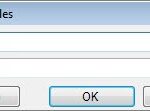Comparing Adjectives are essential for expressing differences between things in English. Words like “bigger,” “faster,” and “more interesting” help us describe how items or people measure up against each other. Understanding how to form and use these adjectives correctly is a key step in improving your English grammar and communication skills. Let’s explore the rules of comparative adjectives with clear explanations and examples to make learning easy and effective.
Forming Comparative Adjectives: The Basic Rules
The way we create comparative adjectives depends mainly on the number of syllables in the original adjective. Syllables are essentially the beats or sounds in a word. Let’s break down the rules based on syllable count.
One-Syllable Adjectives: Adding ‘-er’
For most adjectives with just one syllable, we simply add ‘-er’ to form the comparative. Here are some examples:
- Old becomes older: My brother is older than me.
- Fast becomes faster: A sports car is faster than a bicycle.
- Tall becomes taller: She is taller than her sister.
If the one-syllable adjective already ends in ‘-e’, we only need to add ‘-r’:
- Nice becomes nicer: This restaurant is nicer than the one we went to last week.
- Safe becomes safer: Flying is safer than driving.
- Large becomes larger: An elephant is larger than a dog.
For one-syllable adjectives ending in a vowel followed by a consonant (except for w, x, y), we usually double the consonant before adding ‘-er’. This helps maintain the sound of the vowel:
- Big becomes bigger: A whale is bigger than a shark.
- Hot becomes hotter: The desert is hotter than the arctic.
- Fat becomes fatter: Bears get fatter before winter.
Two or More Syllable Adjectives: Using ‘more’
When adjectives have two or more syllables, we generally use ‘more’ before the adjective to create the comparative form. This is simpler than adding ‘-er’ and keeps the word easy to pronounce.
- Interesting becomes more interesting: This book is more interesting than the last one I read.
- Beautiful becomes more beautiful: A peacock is more beautiful than a pigeon.
- Expensive becomes more expensive: A luxury car is more expensive than a standard car.
However, there’s a slight exception for some two-syllable adjectives that end in ‘-y’. In these cases, we change the ‘-y’ to ‘-i’ and add ‘-er’, similar to the one-syllable rule:
- Happy becomes happier: She is happier now than she was before.
- Easy becomes easier: Math is easier for him than science.
- Noisy becomes noisier: The city is noisier than the countryside.
It’s worth noting that some two-syllable adjectives can take either ‘-er’ or ‘more’, though using ‘more’ is often preferred for clarity, especially for learners. Examples include:
- Simple: simpler or more simple
- Common: commoner or more common
- Gentle: gentler or more gentle
Irregular Comparative Adjectives
Not all adjectives follow the standard rules. Some common adjectives have irregular comparative forms that you just need to memorize. The most important irregular comparative adjectives are:
- Good becomes better: My health is better this year than last year.
- Bad becomes worse: The weather today is worse than yesterday.
- Far becomes further or farther: London is further from here than Paris. (Both ‘further’ and ‘farther’ are correct, but ‘further’ is more commonly used for metaphorical distance, while ‘farther’ is often used for physical distance.)
Using ‘Than’ to Complete the Comparison
The word “than” is crucial when using comparative adjectives because it introduces the second element you are comparing something to. It clarifies the comparison and makes your sentence complete.
- My car is faster than yours.
- She is more intelligent than her brother.
- This movie is better than the one we saw last night.
Without “than,” the comparison is incomplete and can be confusing. “Than” acts as the bridge connecting the two items being compared, making the meaning clear and grammatically correct.
Conclusion: Practice Makes Perfect
Understanding how to use comparing adjectives correctly is a fundamental part of English grammar. By learning the rules for one-syllable, multi-syllable, and irregular adjectives, and remembering to use “than” for complete comparisons, you can significantly enhance your English communication. Like any grammar point, practice is key. Try to use comparative adjectives in your daily conversations and writing to solidify your understanding and make them a natural part of your English. Keep practicing, and you’ll find yourself comparing things like a pro in no time!
